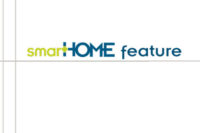Points of Confluence in the Resi Market
In the residential systems market, certain systems are bringing security dealers and electronic systems contractors into the same circle.

Types of Systems Installed by SECURITY DEALERS
“Which types of residential systems and services does your firm install or provide?”
According to companies that labeled themselves primarily as security businesses, in a new study by CEDIA and supported by SDM, these are the types of systems that they sell and install.

Types of Systems Installed by ELECTRONIC SYSTEMS CONTRACTORS
“Which types of residential systems and services does your firm install or provide?”
Electronic systems contractors primarily handle a different set of product categories than security dealers; however, there is some overlap such as web cams/IP video cameras, alarm systems, intercom systems and home health monitoring.

Revenue by Category: SECURITY DEALERS
Survey respondents were asked: “Please estimate the percent of your total RESIDENTIAL revenue that falls into the following categories.”
Although as many as 40 percent of ESCs indicate they install security systems, this product category currently only accounts for about 4 percent, on average, of an ESC company’s residential revenue (see chart on right) compared with 60 percent of residential revenue for a security dealer.

Revenue by Category: ELECTRONIC SYSTEM CONTRACTORS
Survey respondents were asked: “Please estimate the percent of your total RESIDENTIAL revenue that falls into the following categories.”

Products & Services Expected to Be Offered in the Next 24 Months by ESCs
Survey respondents were asked: “You indicated that you do not currently offer the following residential systems and services. Which of these do you plan to begin offering within the next 24 months?”
The top two product categories most likely to be added in the next 24 months by electronic systems contractors not offering such systems now are home health monitoring systems and web cams/IP cameras.

Products & Services Expected to Be Offered in the Next 24 Months by Security Companies
Survey respondents were asked: “You indicated that you do not currently offer the following residential systems and services. Which of these do you plan to begin offering within the next 24 months?”
The top two product categories most likely to be added in the next 24 months by security dealers not offering such systems now are web cams/IP cameras and home theaters/media rooms.






Traditionally, security dealers and electronic systems contractors (ESCs) have operated in different circles, and there hasn’t been much cross-selling of systems that are germane to each industry.
While residential security technicians typically install several systems per week and a median project value is $3,400 — ESC technicians, also labeled “A/V contractors” or “custom electronics installers,” may work on a single project for weeks at a time and their median project value is $10,000. Beyond the small number of security dealers who successfully operate a custom residential division within their security business, few others routinely take on such systems — and few ESCs install security systems as well.
It may seem as though these two industries have little in common, but that is changing. Their business models differ significantly; however, security dealers and ESCs are finding common ground with systems such as residential video, home healthcare and intercoms, among other categories.
We now know this through a study conducted by Indianapolis-based Custom Electronic Design & Installation Association (CEDIA), which SDM supported through collaboration on the survey base and by publication of the results in this and the next few issues. The study, “Size and Scope of the U.S. Residential Electronic Systems Installation Market 2011,” provides a benchmark for the future measurement of the convergence activity. The research was conducted in the third quarter of 2011 and it spanned installing dealers from five different groups including SDM’s subscribers as representative of security contractors. (Of interest is the fact that among survey respondents, 18 percent of ESCs who are CEDIA members and 3 percent of ESCs who are non-CEDIA members indicated that security/alarm installation is their primary business.)
From the study, we know that 65 percent of security dealers and 69 percent of ESCs indicate they sell residential web cams/IP video cameras. Security dealers, however, earn an average of 23 percent of their residential revenue from video cameras, whereas it only constitutes 7 percent on average of an ESC’s revenue. Similarly, both industries say they are involved selling alarms, intercom and distributed audio systems.
Where the convergence becomes apparent is when the study’s respondents were asked about which new product categories they plan to start offering within the next 24 months. Two of the top three products/systems selected by both groups were the same: Home health monitoring systems and Web cams/IP video cameras. Not only that, but 10 percent of ESCs plan to offer security alarm systems, and 12 percent of security dealers plan to offer home theater/media rooms. CEDIA looks forward to additional annual studies that will indicate the level at which convergence is taking place in the residential market.
Look for the February 2012 issue of SDM which will feature more results from CEDIA’s study, focusing on business costs and revenues.
Looking for a reprint of this article?
From high-res PDFs to custom plaques, order your copy today!












